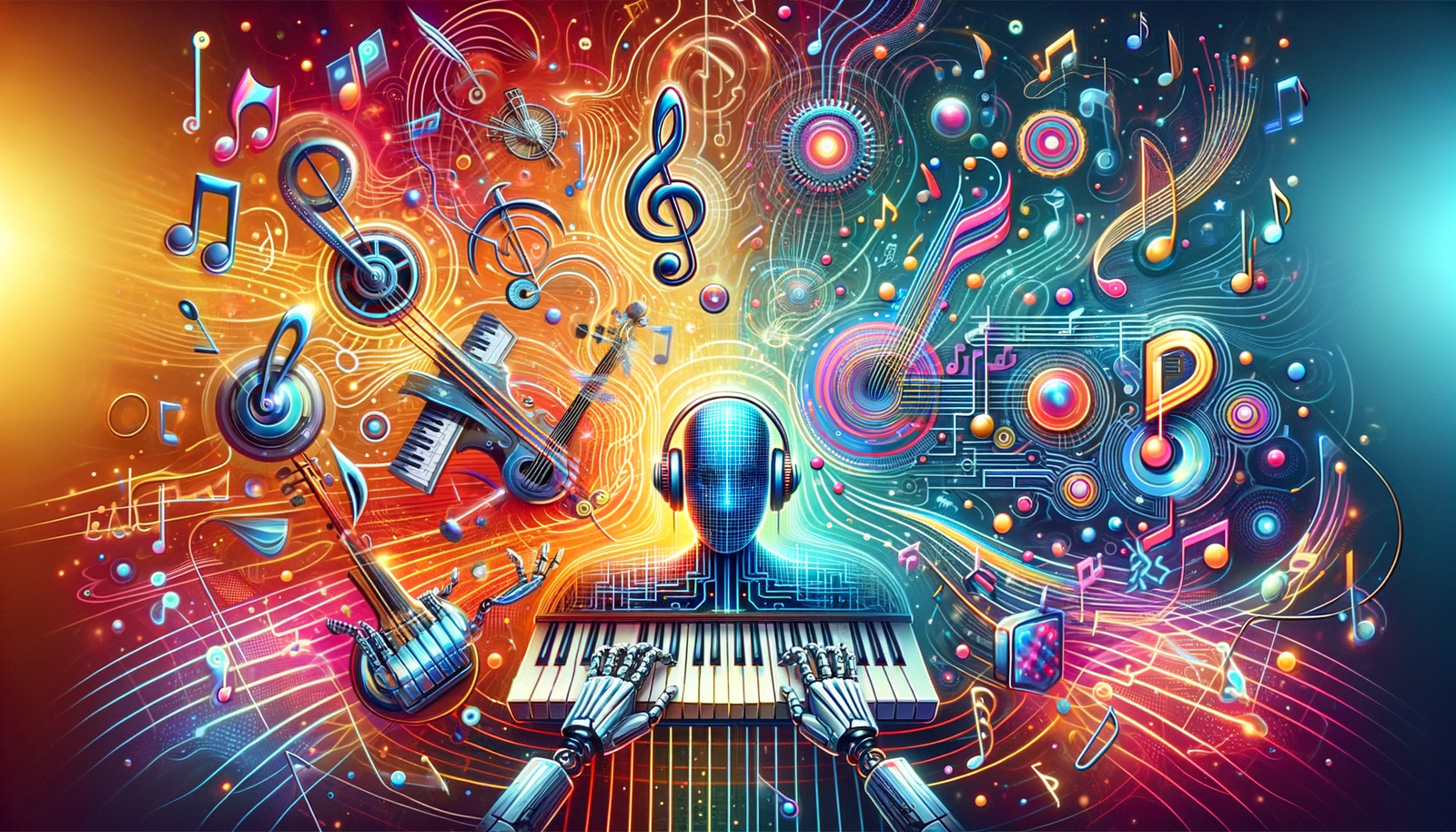The Timeless Journey of The Rolling Stones
04 MAY, 2024
NOSTALGIE NEW YORK

Artificial Intelligence (AI) is rapidly transforming numerous industries, and the music industry is no exception. From composition and production to distribution and marketing, AI is poised to revolutionize the way we create, share, and experience music. Here are some key ways AI is impacting and will continue to impact the music industry.

AI algorithms are increasingly capable of composing music autonomously. Tools like OpenAI's MuseNet and Google's Magenta use deep learning to generate music in various styles, mimicking the nuances of different genres and artists. These AI systems can create background scores for films, video games, and other media, significantly reducing the time and cost associated with traditional music composition.
AI can serve as a collaborative partner for musicians, offering suggestions for melodies, harmonies, and rhythms. Tools like Amper Music and AIVA assist artists in overcoming creative blocks, providing new ideas and inspirations. This symbiotic relationship between human creativity and AI can lead to innovative and unique musical compositions.
AI-driven software like LANDR and iZotope Neutron can automatically mix and master tracks, ensuring professional sound quality. These tools analyze the audio and apply appropriate equalization, compression, and reverb settings, making high-quality production accessible to independent artists who may not have the resources to hire professional engineers.
AI powers the recommendation engines of streaming services like Spotify, Apple Music, and YouTube. By analyzing users' listening habits, AI algorithms can suggest songs, artists, and playlists that match individual preferences, creating a highly personalized listening experience. This has a profound impact on music discovery, helping users find new music that they are likely to enjoy.
AI can generate dynamic playlists that adapt to the listener's mood, activity, or environment. For example, Spotify's "Daily Mix" and "Discover Weekly" playlists use AI to curate a selection of tracks based on the user's past behavior, while services like Endel create real-time soundscapes tailored to the listener's current context, such as work, relaxation, or exercise.
AI helps artists and labels identify and reach their target audience more effectively. By analyzing social media trends, listening data, and user demographics, AI can optimize marketing campaigns, ensuring that promotional efforts are directed towards the most receptive audiences. This leads to more efficient use of marketing budgets and increased fan engagement.
AI can predict which songs or albums are likely to become hits by analyzing patterns in music consumption data. This allows record labels to make informed decisions about which artists to sign and which tracks to promote, reducing the risk associated with new releases. Predictive analytics can also help artists understand which elements of their music resonate most with their audience.
AI can enhance live performances through real-time sound optimization, visual effects, and interactive elements. For instance, AI-driven lighting and visuals can adapt to the music being played, creating a more immersive concert experience. AI can also assist in real-time audio mixing, ensuring optimal sound quality throughout the performance.
AI is a key component in the development of virtual and augmented reality concerts. These technologies allow fans to experience live performances from the comfort of their homes, providing new revenue streams for artists. AI can create lifelike avatars and environments, making virtual concerts as engaging as physical ones.
AI is revolutionizing music education by providing personalized learning experiences. Apps like Yousician and Simply Piano use AI to offer real-time feedback and tailor lessons to the student's skill level and progress. These tools make learning music more accessible and enjoyable for beginners and advanced musicians alike.
AI can assist students in composition by providing suggestions and corrections, much like a human tutor. Additionally, AI-driven practice tools can create customized exercises that target specific areas for improvement, helping musicians develop their skills more efficiently.
As AI-generated music becomes more prevalent, questions arise about copyright and ownership. Who owns the rights to a piece of music created by an AI? How should royalties be distributed when AI plays a significant role in the composition process? These questions need to be addressed to ensure fair compensation for creators.
There is a concern that AI could lead to a homogenization of music, with algorithms favoring certain formulas that are proven to be popular. Maintaining a balance between leveraging AI's capabilities and preserving the authenticity and diversity of human creativity will be crucial.
AI systems rely on vast amounts of data to function effectively. Ensuring the privacy and security of user data is paramount to maintaining trust in AI-driven music services.
AI is set to revolutionize the music industry in ways that were once unimaginable. From composition and production to personalized listening experiences and marketing, AI offers powerful tools that can enhance creativity, efficiency, and accessibility. However, as we embrace these advancements, it is essential to address the ethical and practical challenges they bring. By doing so, we can ensure that AI serves as a valuable ally in the continued evolution of music.
Send us your email and we'll reply so you can send us
your questions or suggestions.